The Essential Guide to Pallet Trucks
Date Posted:19 July 2024
Whether you opt for a manual or electric model, selecting the right type based on your specific needs and maintaining it properly will ensure smooth and safe operations in your facility.
Pallet trucks, commonly referred to as pallet jacks or pallet lifters, are indispensable tools in material handling operations across various industries. They are designed to facilitate the efficient movement of palletized goods within warehouses, distribution centers, retail environments, and other settings where large quantities of goods need to be transported over short distances. This article delves into the various aspects of pallet trucks, highlighting their types, features, benefits, and usage considerations.
Types of Pallet Trucks
Manual Pallet Trucks: These are the most common and economical type. They are operated by hand, featuring a hydraulic pump to lift pallets off the ground and wheels for easy maneuvering. Ideal for small to medium-sized warehouses, manual pallet trucks are simple to use and require minimal maintenance.
Electric Pallet Trucks: Powered by batteries, these trucks offer enhanced efficiency and reduced physical strain on the operator. They are suitable for larger warehouses and facilities with high-volume pallet movement. Electric pallet trucks typically feature advanced controls for easy operation and can handle heavier loads than manual counterparts.
High-Lift Pallet Trucks: These trucks are designed to lift pallets to higher elevations, making them useful for stacking operations and loading/unloading tasks that require elevated heights. They are available in both manual and electric versions.
Weighing Scale Pallet Trucks: These trucks are equipped with built-in scales, allowing operators to weigh pallets as they are moved. This feature is particularly beneficial in industries where precise weight measurements are crucial, such as shipping and receiving departments.
Stainless Steel Pallet Trucks: Made from stainless steel, these trucks are corrosion-resistant and ideal for environments that require high hygiene standards, such as food processing plants, pharmaceuticals, and chemical industries.
Key Features & Benefits
Ease of Use: Pallet trucks are designed for simplicity, with intuitive controls that make them easy to operate, even for inexperienced users. Manual trucks typically feature a tiller handle for steering and a lever for lifting and lowering the forks.
Efficiency: By enabling the quick and easy movement of pallets, these trucks significantly boost productivity. Electric models further enhance efficiency by reducing the physical effort required to move heavy loads.
Versatility: Available in various types and configurations, pallet trucks can handle a wide range of palletized goods, from lightweight items to heavy-duty loads. Their versatility makes them suitable for diverse applications across different industries.
Cost-Effective: Compared to other material handling equipment like forklifts, pallet trucks are relatively inexpensive. This affordability, combined with low maintenance costs, makes them a cost-effective solution for many businesses.
Safety: Pallet trucks are designed with safety in mind, featuring stable construction and secure lifting mechanisms. Electric models often include additional safety features such as emergency stop buttons and load backrests.
Usage Considerations
Load Capacity: It's essential to choose a pallet truck that can handle the maximum weight of the pallets you intend to move. Overloading a pallet truck can lead to mechanical failure and pose safety risks.
Fork Dimensions: The length and width of the forks should match the size of the pallets you typically use. Standard pallet trucks have forks that fit standard-sized pallets, but specialized models are available for non-standard sizes.
Lift Height: Consider the required lift height for your operations. High-lift pallet trucks are necessary for tasks involving elevated storage or stacking.
Environment: The operating environment plays a significant role in choosing the right pallet truck. For example, stainless steel models are preferable in corrosive or hygiene-sensitive environments, while electric models are better suited for large, busy warehouses.
Frequency of Use: For operations that involve frequent or continuous use, electric pallet trucks are more suitable due to their reduced physical strain and increased efficiency. Manual pallet trucks are ideal for infrequent or light-duty use.
Maintenance and Safety Tips
Regular Inspections: Conduct routine inspections to check for any signs of wear and tear, particularly on the wheels, forks, and hydraulic system. Address any issues promptly to prevent accidents and ensure smooth operation.
Proper Training: Ensure that all operators are adequately trained in the safe use of pallet trucks. Training should cover the correct handling techniques, load limits, and safety features.
Safe Operation: Always follow the manufacturer’s guidelines for safe operation. Avoid exceeding the load capacity, ensure loads are balanced and secure, and operate the truck at a safe speed.
Maintenance Schedule: Adhere to a regular maintenance schedule, including lubrication of moving parts, checking hydraulic fluid levels, and battery maintenance for electric models.



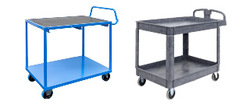
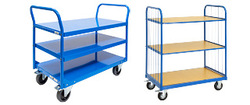
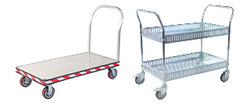
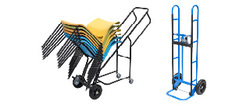
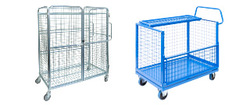
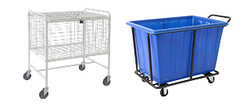
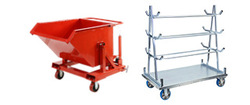
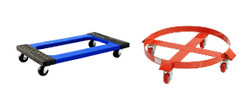
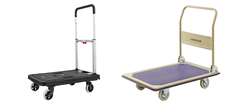
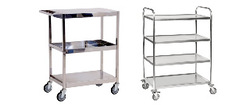
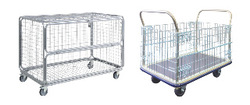
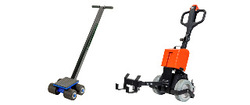
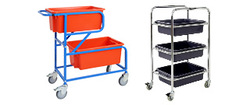
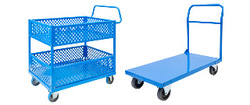
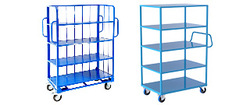
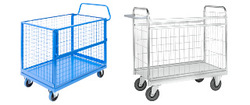
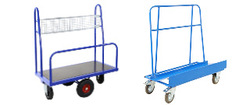
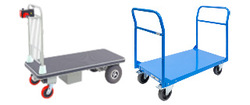
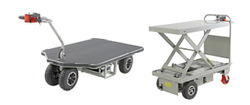
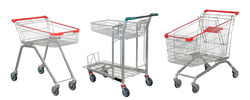
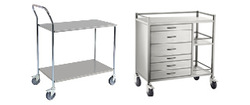
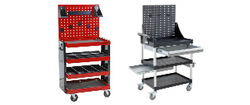
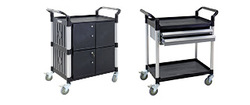
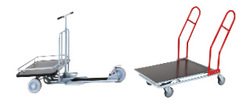
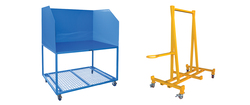



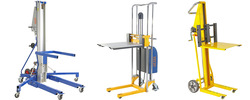



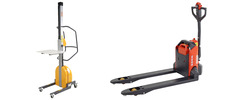
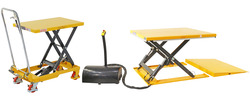
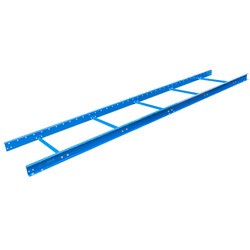
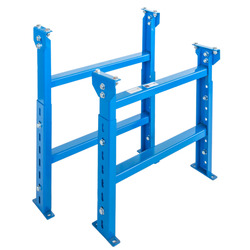
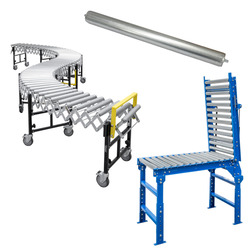
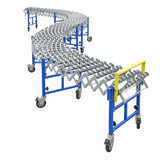


















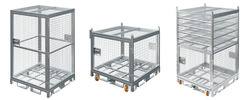

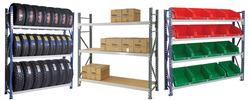
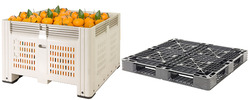
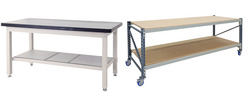
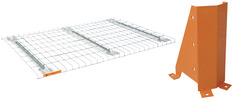
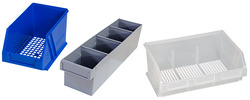

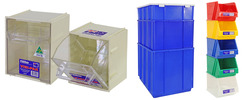

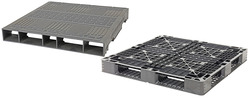

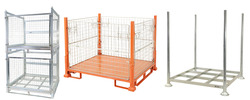
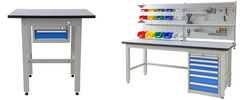
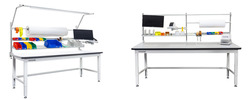


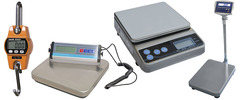



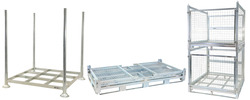
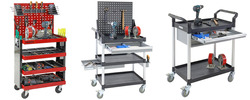
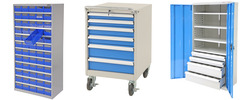

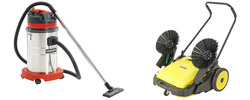











 Trolleys / Hand Trucks
Trolleys / Hand Trucks 2 Tier Trolleys
2 Tier Trolleys 3 Tier Trolleys
3 Tier Trolleys Aluminium Trolleys
Aluminium Trolleys Appliance & Hand Trucks
Appliance & Hand Trucks Cage Trolleys
Cage Trolleys Cleaning Carts & Trolleys
Cleaning Carts & Trolleys Construction Trolleys
Construction Trolleys Dollies
Dollies Foldable Trolleys
Foldable Trolleys Hospital Trolleys
Hospital Trolleys Laundry/Linen Trolleys
Laundry/Linen Trolleys Load Skates & Tow Tugs
Load Skates & Tow Tugs Mail / Office Trolleys
Mail / Office Trolleys Multi Purpose Trolleys
Multi Purpose Trolleys Multi-Tier Shelf Trolleys
Multi-Tier Shelf Trolleys Order Picking Trolleys
Order Picking Trolleys Panel Cart Trolleys
Panel Cart Trolleys Platform Trolleys
Platform Trolleys Powered Trolleys
Powered Trolleys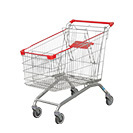 Shopping Trolleys
Shopping Trolleys Stainless Steel Trolleys
Stainless Steel Trolleys Tool Trolleys
Tool Trolleys Utility Carts
Utility Carts Warehouse Trolleys
Warehouse Trolleys Custom Trolleys
Custom Trolleys Lifting Equipment
Lifting Equipment Forklift Attachments
Forklift Attachments Jib Attachments
Jib Attachments Lifting Hoists & Pallet Hooks
Lifting Hoists & Pallet Hooks Manual Stackers & Lifters
Manual Stackers & Lifters Pallet Jacks
Pallet Jacks Pallet Lifters
Pallet Lifters Pallet Rotators & Dispenser
Pallet Rotators & Dispenser Powered Pallet Trucks & Electric Lifters
Powered Pallet Trucks & Electric Lifters Scissor Lift Trolleys and Tables
Scissor Lift Trolleys and Tables Conveyor Equipment
Conveyor Equipment Conveyor Frames
Conveyor Frames Conveyor Stands
Conveyor Stands Roller Conveyors
Roller Conveyors Skate Wheel Conveyors
Skate Wheel Conveyors Access Equipment
Access Equipment Container & Yard Ramps
Container & Yard Ramps Step Stools & Ladders
Step Stools & Ladders Work Platforms & Crane Cages
Work Platforms & Crane Cages Drum Handling
Drum Handling Drum Storage & Bunding
Drum Storage & Bunding Drum Trolleys & Lifters
Drum Trolleys & Lifters Forklift Drum Handling
Forklift Drum Handling Containment & Spillage
Containment & Spillage Aerosol Cans Storage Cages
Aerosol Cans Storage Cages Bunded Pallets & Storage
Bunded Pallets & Storage Corrosive Goods Storage Cabinets
Corrosive Goods Storage Cabinets Flammable Liquid Cabinets
Flammable Liquid Cabinets Forklift Gas Storage Cages
Forklift Gas Storage Cages Gas Cylinder Storage
Gas Cylinder Storage Site Storage
Site Storage Spill Kits
Spill Kits Stillage Cages
Stillage Cages Waste Handling
Waste Handling Bin Lifters & Tippers
Bin Lifters & Tippers Plastic Waste Bins and Carts
Plastic Waste Bins and Carts Steel Waste and Tipping Bins
Steel Waste and Tipping Bins Storage Equipment
Storage Equipment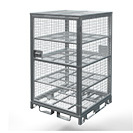 750 Series Cage Configurations
750 Series Cage Configurations Heavy Duty Cabinets & Benches
Heavy Duty Cabinets & Benches Heavy Duty Shelving
Heavy Duty Shelving Mega Bins & Pallets
Mega Bins & Pallets Packing Benches
Packing Benches Pallet Racking Accessories
Pallet Racking Accessories Parts Trays & Stor-Pak Bins
Parts Trays & Stor-Pak Bins Pegboard & Louvre Panels
Pegboard & Louvre Panels Plastic Bins
Plastic Bins Plastic Handling Solutions Bins
Plastic Handling Solutions Bins Plastic Pallets
Plastic Pallets Stack & Nest Bins
Stack & Nest Bins Storage Cages
Storage Cages Workplace Equipment
Workplace Equipment Workbenches
Workbenches Modular Workbenches
Modular Workbenches Electric Height-Adjustable Workbenches
Electric Height-Adjustable Workbenches Floor Matting
Floor Matting Industrial Weighing Scales
Industrial Weighing Scales Pallet Wrapping & Packaging Machinery
Pallet Wrapping & Packaging Machinery Ramps
Ramps Stationery Cupboards
Stationery Cupboards Storage and Stillage Cages
Storage and Stillage Cages Tool Trolleys
Tool Trolleys Tooling Cabinets
Tooling Cabinets Wheelie Bins
Wheelie Bins Workshop Equipment
Workshop Equipment Safety Equipment
Safety Equipment Gloves and PPE
Gloves and PPE Pallet Rack Post Protectors
Pallet Rack Post Protectors Safety Barriers & Bollards
Safety Barriers & Bollards Safety Knives & Cutters
Safety Knives & Cutters Signs and Traffic Supplies
Signs and Traffic Supplies Tool & First Aid Boxes
Tool & First Aid Boxes Construction Equipment
Construction Equipment Concrete Equipment
Concrete Equipment General Site Equipment
General Site Equipment Lifting Equipment
Lifting Equipment Site Storage
Site Storage Waste
Waste 











